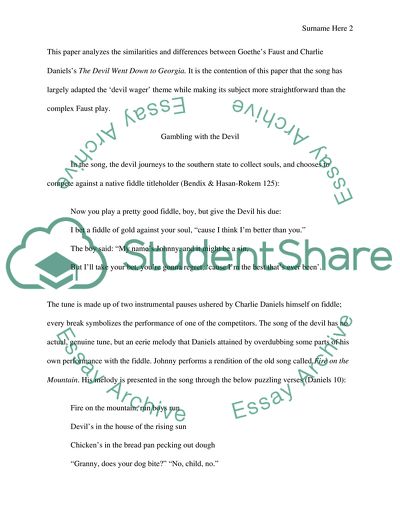Cite this document
(“COMPARE CONTRAST THE DEVIL WENT DOWN TO GEORGIA AND GOETHE'S FAUSTUS Research Paper”, n.d.)
Retrieved from https://studentshare.org/english/1647878-compare-contrast-the-devil-went-down-to-georgia-and-goethes-faustus
Retrieved from https://studentshare.org/english/1647878-compare-contrast-the-devil-went-down-to-georgia-and-goethes-faustus
(COMPARE CONTRAST THE DEVIL WENT DOWN TO GEORGIA AND GOETHE'S FAUSTUS Research Paper)
https://studentshare.org/english/1647878-compare-contrast-the-devil-went-down-to-georgia-and-goethes-faustus.
https://studentshare.org/english/1647878-compare-contrast-the-devil-went-down-to-georgia-and-goethes-faustus.
“COMPARE CONTRAST THE DEVIL WENT DOWN TO GEORGIA AND GOETHE'S FAUSTUS Research Paper”, n.d. https://studentshare.org/english/1647878-compare-contrast-the-devil-went-down-to-georgia-and-goethes-faustus.


